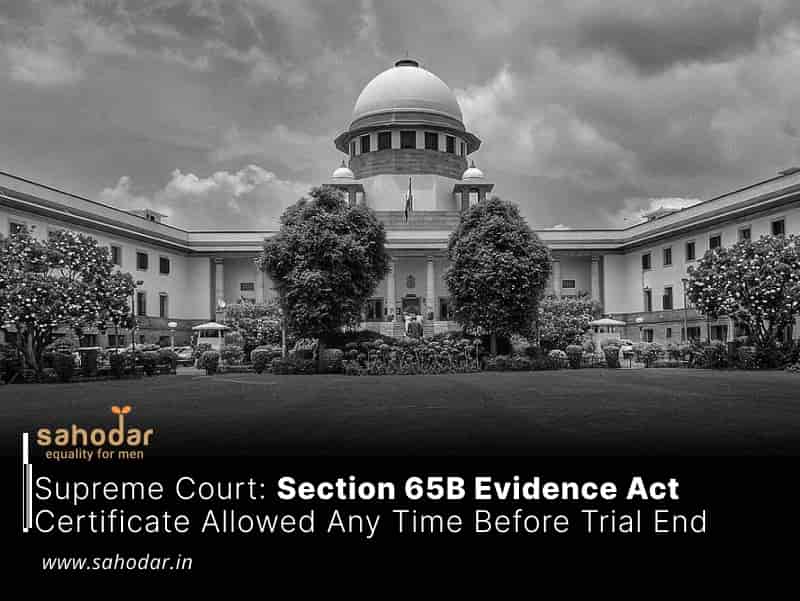The Supreme Court underscored the permissibility of adducing a Section 65-B certificate pursuant to the Indian Evidence Act at any juncture of the trial proceedings. In the context of the Bangalore bomb blasts case, the Court expounded that the essence of a fair trial in criminal proceedings lies not in partiality to either party but in the assurance that culpable individuals do not evade legal consequences and that the innocent are shielded from unjust penal ramifications. The case involved an appeal by the State before the Karnataka High Court, which affirmed the Trial Court’s denial of prosecution applications under Section 311 of the Code of Criminal Procedure.
The two-Judge Bench of Justice Vikram Nath and Justice Rajesh Bindal held, “Fair trial in a criminal case does not mean that it should be fair to one of the parties. Rather, the object is that no guilty should go scot-free and no innocent should be punished. A certificate under Section 65-B of the Act, which is sought to be produced by the prosecution is not an evidence which has been created now. It is meeting the requirement of law to prove a report on record.”
The Bench underscored that the admission of the Section 65B certificate under the Indian Evidence Act, 1872, by the prosecution would not entail irremediable prejudice to the accused.
The appellant/State was represented by Additional Advocate General Aman Panwar, whereas Advocate Balaji Srinivasan acted as counsel for the respondents.
In the context of the case involving the detonation of explosive devices in Bangalore in 2008, the Court acknowledged the nationwide repercussions of the incident, emphasizing the imperative for a meticulous and scientific investigation. Pursuant to the initiative of one of the accused, various electronic devices were seized, comprising a laptop, external hard disc, pen drives, floppies, CDs, SIM cards, mobile phones, memory cards, and digital cameras. These articles underwent forensic scrutiny at the CFSL, Hyderabad, yielding a report in 2010. The said report was formally presented to the Trial Court in 2012 with the intention of its utilization during the statement recording phase.
Upon the objection raised by the accused against the admission of the report absent a Section 65-B certificate, the requisite certification was expeditiously procured under Section 65-B. Subsequently, an application under Section 311 of the Cr.P.C. was instituted, seeking the recall of a witness and the introduction of the aforementioned certificate into evidence. Despite the ongoing trial, the Trial Court, purportedly misconstruing the legal framework, dismissed the application. This decision was subsequently upheld by the High Court, with the primary rationale attributed to the perceived delay in securing the Section 65B certificate.
The Supreme Court in the above regard observed, “… it cannot be inferred that there was delay of six years in producing the certificate. In fact, report received from CFSL, Hyderabad on the basis of the contents of electronic devices dated 29.11.2010 was already placed before the Trial Court on 16.10.2012. In fact, the stand of the prosecution was that when the original electronic devices were already produced and marked MOs, there was no need to produce the certificate under Section 65-B of the Act. Still, as a matter of abundant caution, the same was produced that too immediately after objection was raised by the accused against the production of CFSL report prepared on the basis of the electronic devices seized.”
The Court also mentioned that the accused will be provided ample opportunity to counter the evidence presented by the prosecution, and this is the intended purpose of Section 311 of the Cr.P.C. Additionally, it acknowledged that the objective of the Code is to ascertain the truth.
“However, the power under Section 311 of the Cr.P.C. can be exercised to subserve the cause of justice and public interest. In the case in hand, this exercise of power is required to uphold the truth, as no prejudice as such is going to be caused to the accused”, added the Court.
In light of this, the Supreme Court granted approval to the appeal, nullified the previous orders, and instructed the Trial Court to continue with the proceedings.

